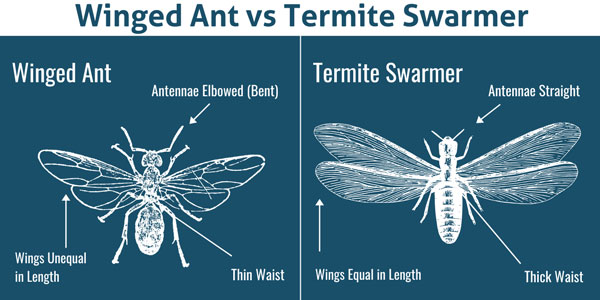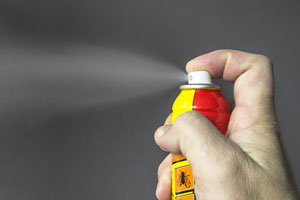
In today’s day and age, the DIY movement is more popular than ever, whether it’s gardening, arts and crafts, or home repair. But what about pest control? Let’s talk about the pros and cons. At-home remedies may seem convenient, but are they reliable? And how do the costs compare between DIY pest control and professional pest control?
Let’s talk about DIY pest control versus professional pest control and when it’s the right time for each.
Pros & Cons of DIY Pest Control
When the issue is minor or the pest is more of a nuisance than a danger, DIY pest control is a good option. When the issue is severe or the pest is more than a nuisance (e.g. termites, rodents, bed bugs), it’s probably a good idea to hire a professional exterminator so you can be sure the issue is resolved fully.
- Certain pests, such as rodents, termites, and carpenter ants are more dangerous and destructive. Getting rid of these infestations will be a challenge for any novice.
- Many store-bought products are filled with chemicals that can be dangerous for you, your family, and your pets. Always read the label and apply these products as instructed.
- Pest control technicians have experience using these products and know how to use them safely.
- At-home remedies rarely work in the long term and do not prevent future infestations.
Which Types of Pests Should You Call an Exterminator for?
Pests can be broken down into three basic types: nuisance pests, dangerous pests, and destructive pests.
Nuisance pests
Types of nuisance pests include stink bugs, silverfish, house spiders, and ants. You don’t like having them around, but it’s mainly because you don’t like seeing them.
Should you call an exterminator for nuisance pests? It’s up to you. With nuisance pests, it comes down to how much you can tolerate it.
Dangerous pests
Dangerous pests include those that could cause harm to people or pets, and that can be different for different people.
Flies and cockroaches can be dangerous because they spread bacteria that can cause illness.
Some venomous spiders can be considered dangerous. Rodents are very dangerous for the unsanitary droppings they leave. Bees and wasps can be dangerous, too, especially if you or a loved one has allergies or sensitivities.
Should you call an exterminator for dangerous pests? If you think that a pest could potentially be hazardous, you should call a professional pest control expert to make sure they’re eliminated completely.
Destructive pests
Termites are the most well-known destructive pest — they cause billions of dollars to American homeowners every year. Other examples of destructive pests include carpenter ants, carpenter bees, rodents, birds, and other wildlife.
Should you call an exterminator for destructive pests? We highly recommend it – especially for termites. Termites will continue causing damage for as long as they remain in a structure.
Does DIY Termite Control Work?
DIY termite control is not often successful. The challenge with termite control is that they like to nest deep within a structure. That makes them hard to detect, and after you’ve administered DIY treatment, it’s hard to know if you’ve eliminated the infestation.
Our experienced termite exterminators know how to locate the infestation, and exactly how to target them with state-of-the-art treatments. They can also help with lasting termite prevention, so you can feel protected months and even years from now.
Can You Do DIY Mosquito Control?
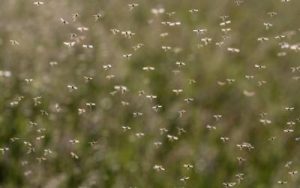 Mosquitoes are one of the most difficult pests to eliminate. There are so many of them and they breed quickly, so even if you wipe out most of them, you will still have to contend with the next generation of larvae that’s likely to emerge in a few days.
Mosquitoes are one of the most difficult pests to eliminate. There are so many of them and they breed quickly, so even if you wipe out most of them, you will still have to contend with the next generation of larvae that’s likely to emerge in a few days.
The single most effective way to limit mosquitoes in your yard is to dump out any standing water you find. Even a small amount is enough for mosquito larvae to develop. Without the water, they will die.
For adult mosquitoes, mosquito larvae, and mosquito eggs, we offer highly effective mosquito barrier treatments. If you’re planning a gathering, our mosquito control experts will also work with you to create a strategy will make sure the party isn’t crashed by mosquitoes.
Is It Time for Professional Pest Control?
When it comes down to it, no one wants to deal with pests in their home. If you want to get rid of them completely, a professional pest control company is your best bet. In the long run, a pest control professional can provide you with the tools you need to keep pests out for good.
Ready to solve your problem and stop worrying? Give Active Pest Control a call today to learn more about our hassle-free options.

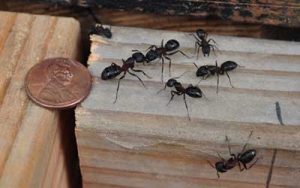 Have you noticed that pests start to get worse here in Atlanta as spring temperatures warm up? Wasps and bees begin to buzz around, winged insects crawl on your exterior walls, and you start to notice the dreaded ants crawling along your floorboards. Springtime is pest time nationwide. This time of the year is when many pests that were less active in the winter months begin to come out of dormancy. The reason why pest problems become so common in the spring, however, is because many of the pests were already lying in wait in the winter—right inside your home.
Have you noticed that pests start to get worse here in Atlanta as spring temperatures warm up? Wasps and bees begin to buzz around, winged insects crawl on your exterior walls, and you start to notice the dreaded ants crawling along your floorboards. Springtime is pest time nationwide. This time of the year is when many pests that were less active in the winter months begin to come out of dormancy. The reason why pest problems become so common in the spring, however, is because many of the pests were already lying in wait in the winter—right inside your home.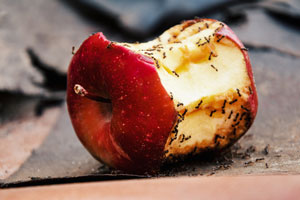 Ants can be a problem year-round, but they tend to show up in overwhelming numbers during the summertime here in the Atlanta area. Although ants aren’t considered as dangerous as other pests, they are the number one nuisance pest in the nation for a reason. They often will appear in your kitchen, bathrooms, and along your floorboards in search for food and shelter. To avoid the frustration of ants in your property, it’s important to learn how to prevent summertime ants.
Ants can be a problem year-round, but they tend to show up in overwhelming numbers during the summertime here in the Atlanta area. Although ants aren’t considered as dangerous as other pests, they are the number one nuisance pest in the nation for a reason. They often will appear in your kitchen, bathrooms, and along your floorboards in search for food and shelter. To avoid the frustration of ants in your property, it’s important to learn how to prevent summertime ants.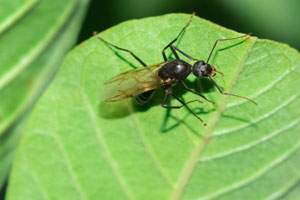 If you think you’ve spotted a termite in or near your home, how can you be so sure it’s not a
If you think you’ve spotted a termite in or near your home, how can you be so sure it’s not a 